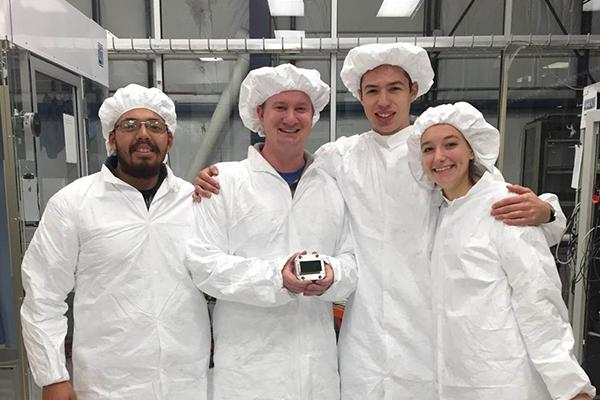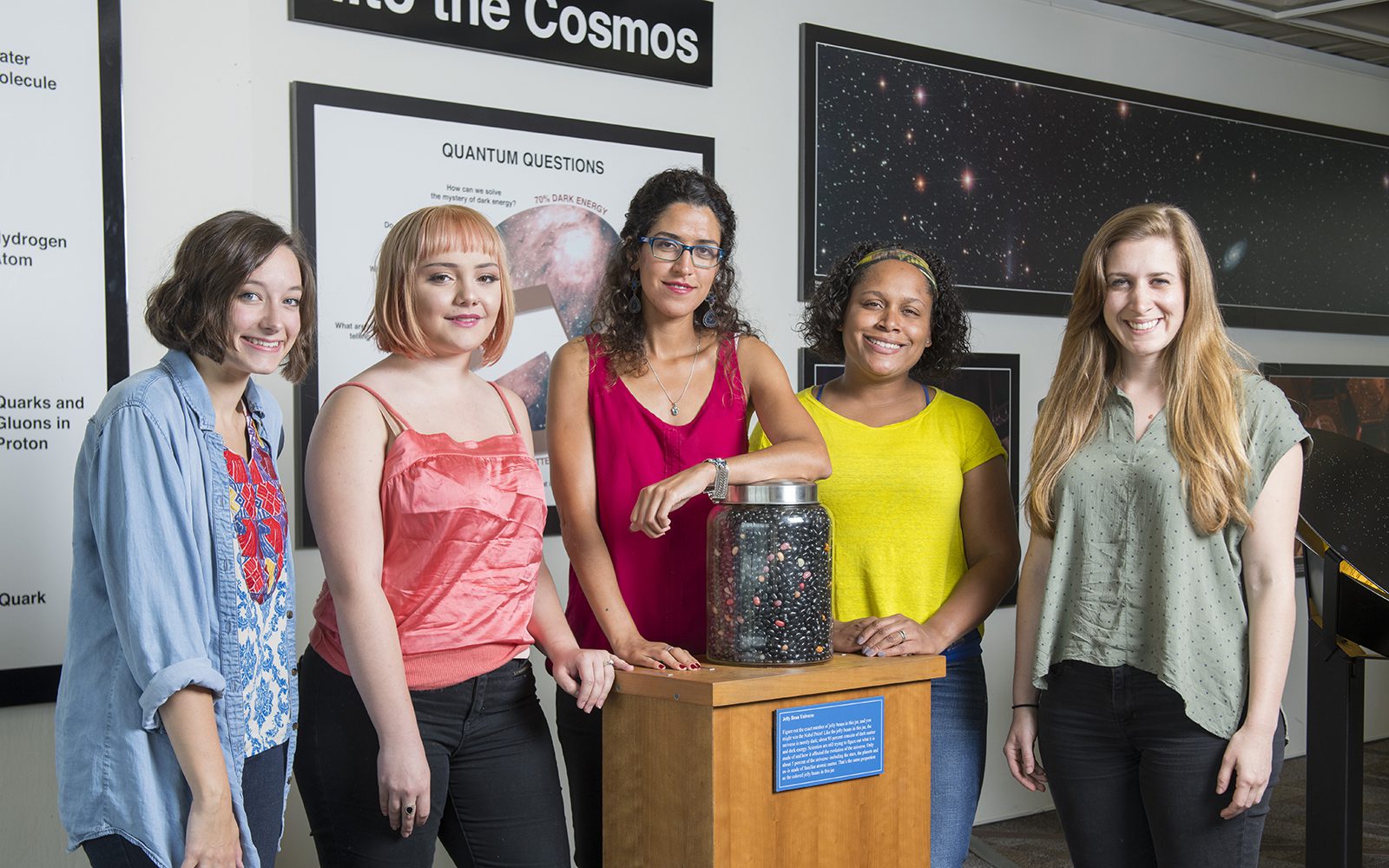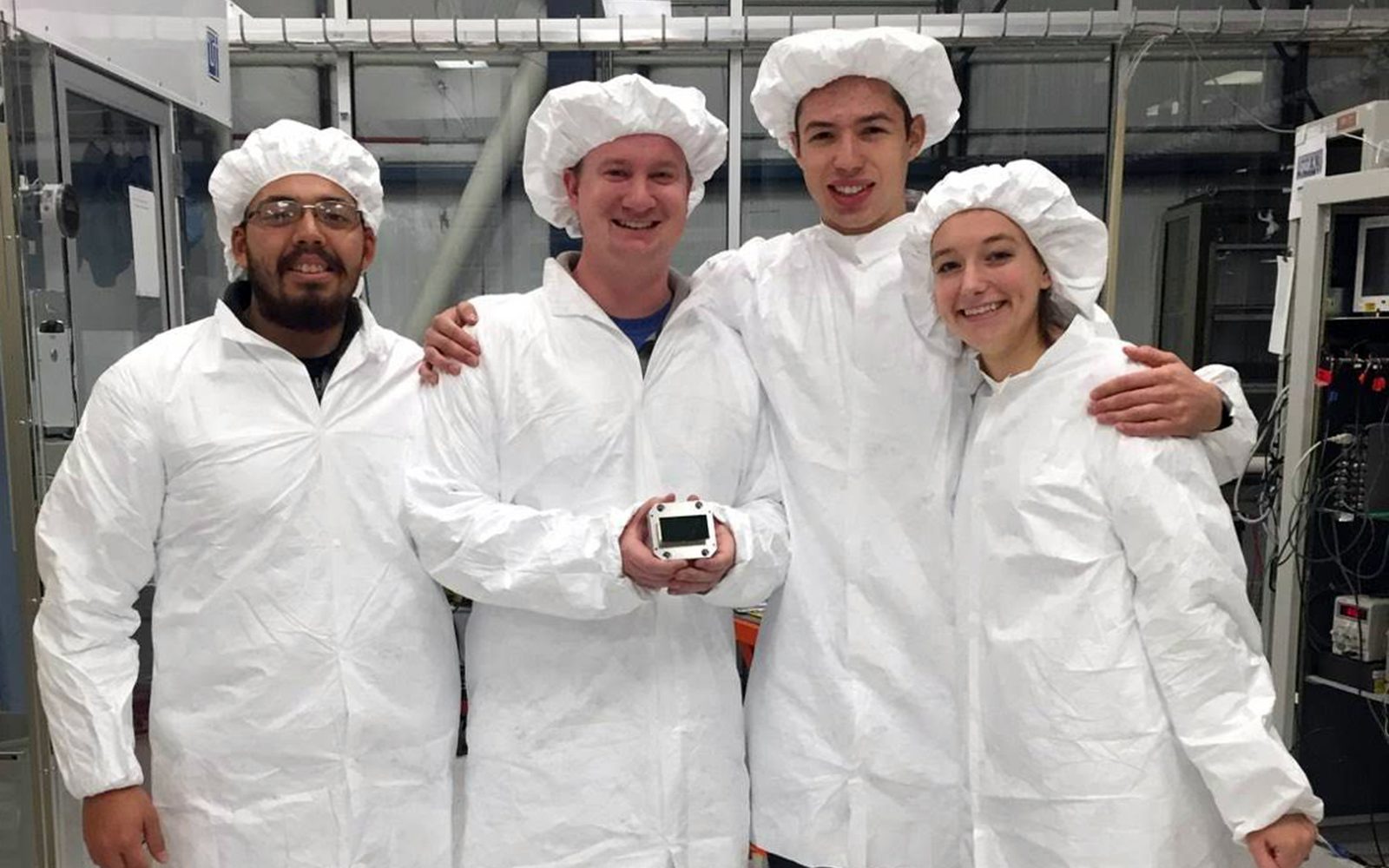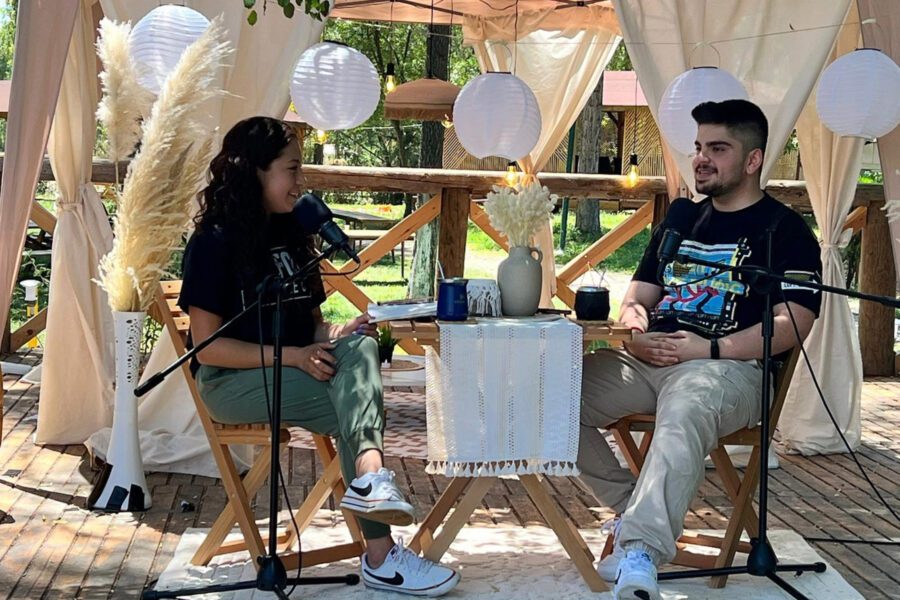
Senior mechanical engineering student Katie (Chennault) Dickey had quite a lot on her plate this semester. In addition to preparing to present her capstone research project, “Thermal and Orbital Analysis of DarkNESS and CubeSat Focus on Simulation,” at Olivet’s annual Scholar Week, she wrapped up a senior engineering design project also relating to the study of dark matter.
Katie’s projects uniquely combine engineering, astronomy, physics and mathematics with research at Fermi National Accelerator Lab in Batavia, Illinois. Following her sophomore year, Katie was offered an internship at Fermilab to contribute to the design, simulation, testing and building of a cube satellite, which will be launched into space in the coming years to help identify the makeup of dark matter. The team at Fermilab is interested in detecting the emission line that corresponds to a specific candidate for dark matter to better identify and understand the elements that make up the universe.

This sounds complicated because it is. Dark matter and dark energy make up over 95% of the universe and affect nearly every law of physics, yet scientists don’t fully understand what dark matter is composed of.
Honors program associate director, associate professor of chemistry and geosciences, and Katie’s faculty advisor, Dr. Stephen Case ’05 says, “Scientists know from gravitational effects that dark matter exists, but it doesn’t seem to interact with light or other matter. Any theory we make about the origins, development, or long-term fate of the universe means we have to make assumptions about dark matter — what it is and how it behaves.”
Katie spent the better part of two summers running simulations for a cube satellite that will measure the presence of the dark matter with hyper sensitive sensors. In order to function, the sensors have to remain below 170 Kelvin, while the rest of the satellite should remain close to room temperature.
Based on decades of scientific research, this particular candidate for dark matter should produce a photon with a very specific energy. No known particles decay into this photon, meaning that successfully detecting this energy would point to the existence of this dark matter candidate and would be a ground-breaking discovery in the fields of physics, chemistry and astronomy. This project alone has already impacted research at Fermilab as it has demonstrated the viability of space-based experiments designed and planned at the lab.
The research also intersects with Katie’s engineering senior design project in the Martin D. Walker School of Engineering and Technology. She worked with Raymond Marquez, Kyle McNamara and Jacob Hamachek to construct a Helmholtz cage that simulates the Earth’s magnetic field and exposes the satellite to the sort of forces it will experience in orbit. The team designed the apparatus using CAD (computer aided design) software and built it utilizing 3D printers and special resin to create specialized hinges that can withstand high levels of heat.

“Through my team’s senior design project, we are creating the means for Fermilab to continue designing and launching CubeSats,” Katie says. “In order for Fermilab to ensure the success of the DarkNESS CubeSat mission, the ADCS (Attitude Determination Control System) must be tested to prove its accuracy.”
By building and designing the testing equipment for the CubeSat, future projects at Fermilab will be able to go from concept to a launch without the need for outsourced testing.
These opportunities to collaborate with research analysts at Fermilab provided first-hand research for Katie’s honors capstone project. The University Honors Program stimulates academically gifted students through four interdisciplinary courses and a two-year, faculty-mentored research project.
Dr. Case is confident that rigorous capstone research projects, like Katie’s, set students up for success in future educational pursuits as well as to enter their chosen field or industry.
“Through their research experience, honors students evidence the ability to tackle open-ended problems, to think creatively, to work through the difficult and unexpected complexities that arise in any research project and to demonstrate tenacity,” he says. “In sum, the research project becomes evidence of leadership in their discipline as well as an opportunity to take their place at the table as a developing scholar in their field.”
To learn more about Olivet’s Walker School of Engineering and the University Honors Program, contact the Office of Admissions at admissions@olivet.edu or 800-648-1463.
Photos submitted and used with permission.
Published 4/2/19




